How a once-in-a-lifetime Scout festival turned into an unmitigated disaster
The more than 40,000 attendees had been promised a ‘once-in-a-lifetime’ experience - instead the event quickly descended into chaos, Tara Cobham writes
Your support helps us to tell the story
From reproductive rights to climate change to Big Tech, The Independent is on the ground when the story is developing. Whether it's investigating the financials of Elon Musk's pro-Trump PAC or producing our latest documentary, 'The A Word', which shines a light on the American women fighting for reproductive rights, we know how important it is to parse out the facts from the messaging.
At such a critical moment in US history, we need reporters on the ground. Your donation allows us to keep sending journalists to speak to both sides of the story.
The Independent is trusted by Americans across the entire political spectrum. And unlike many other quality news outlets, we choose not to lock Americans out of our reporting and analysis with paywalls. We believe quality journalism should be available to everyone, paid for by those who can afford it.
Your support makes all the difference.More than 40,000 young people from across the world had been fundraising for months, excitedly counting down the days until the World Scout Jamboree kicked off in South Korea on the first day of August.
The attendees had been promised a “once-in-a-lifetime” experience, involving fun activities and new friends at the first global scout gathering since the pandemic. The World Organization of the Scout Movement (WOSM) added that the theme this year, ‘Draw your Dream’, was about the Scouts making “their Jamboree dreams come true in a safe environment”.
Instead, the event soon turned into a nightmare. Extreme heat resulted in hundreds of participants being taken ill, with snakes under beds and giant mosquitoes among the other challenges faced by the young scouting hopefuls. It all proved too much for the British contingent, who pulled their 4,000 participants from the campsite for the safety of the capital Seoul.
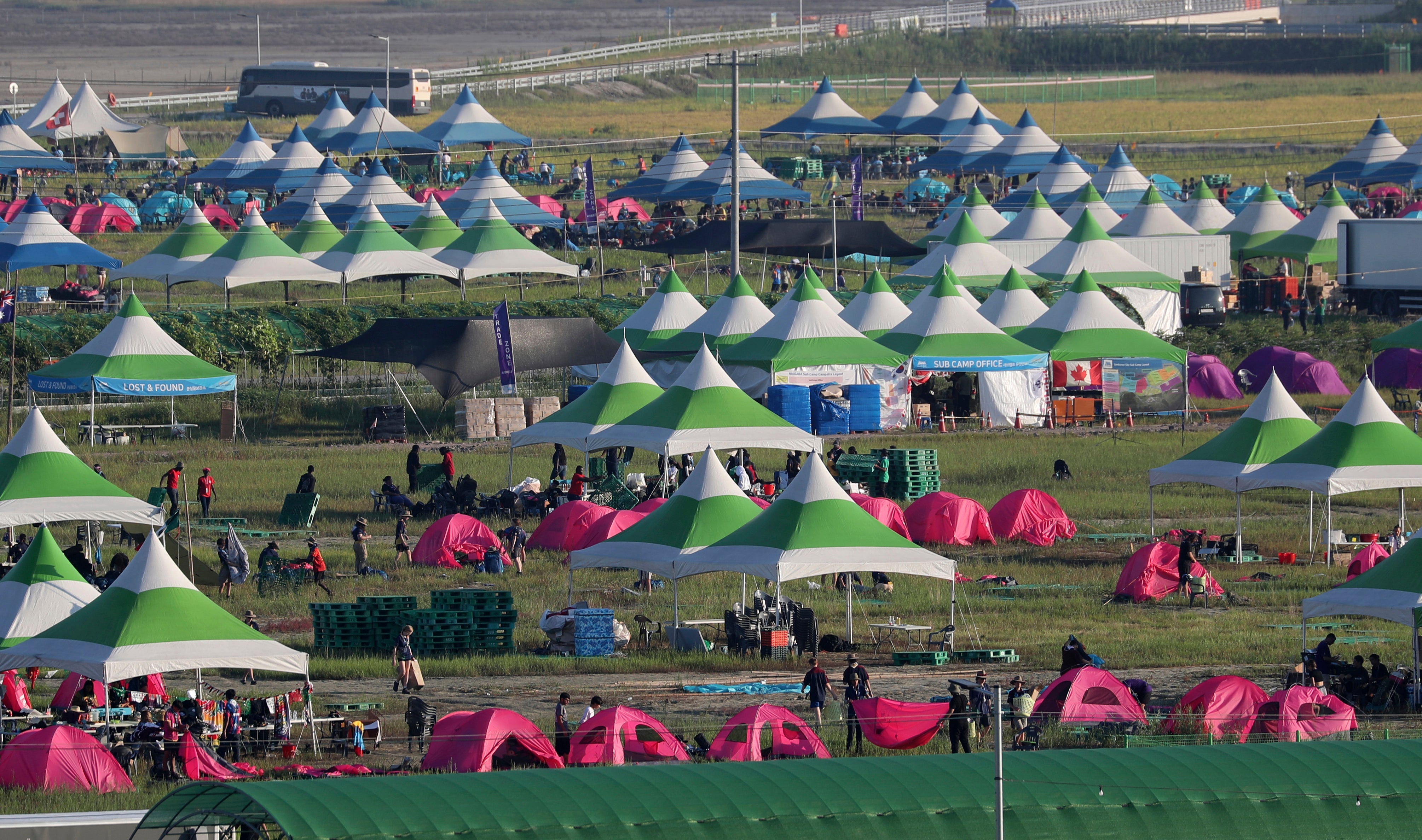
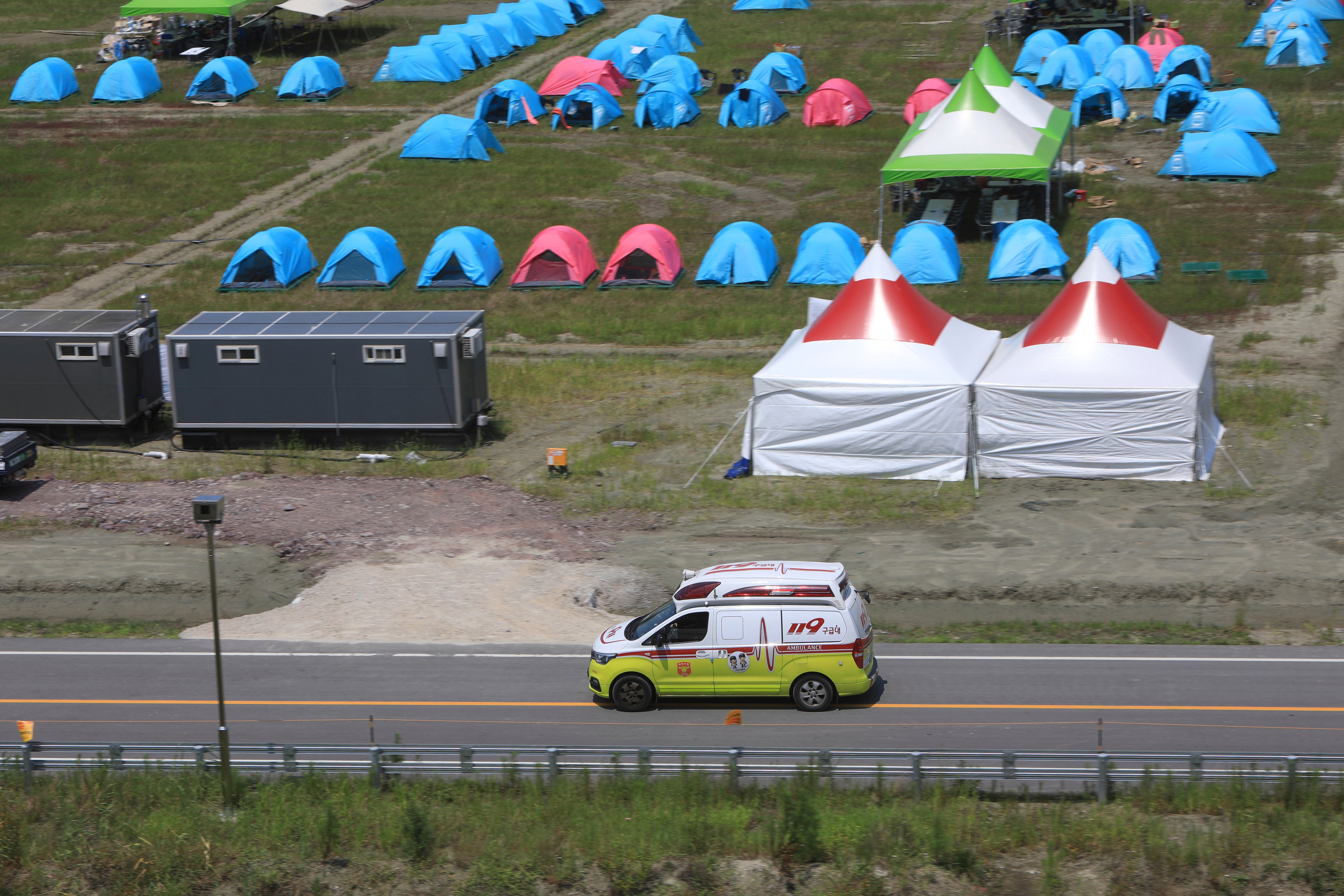
Days later a typhoon, set to bring powerful winds of up to 76mph and heavy rains after tearing its way across south east Asia, forced the evacuation of the remaining 36,000 young people and volunteers, effectively cancelling the event altogether.
Parents have slammed the jamboree, in Saemangeum, North Jeolla, as a “perfect storm of failures” and a “disaster zone” that was “clearly not safe”.
Have you been affected by this story? If so email tara.cobham@independent.co.uk
But how did it all go so badly wrong?
The first sign of trouble came on the opening day when South Korea raised its hot weather warning to the highest “serious” level for the first time in four years, by which point the scorching heat was estimated to have already killed at least 22 people across the country.
Jamboree participants were seen hosing themselves down with water to cool off, while officials said 400 fell sick from heat-related illnesses on that day alone, with hundreds more since, amid temperatures that hit 38C.
One father of a girl attending the global get-together described the worsening conditions at the campsite, located in an area of reclaimed land in southwestern Jeolla province.
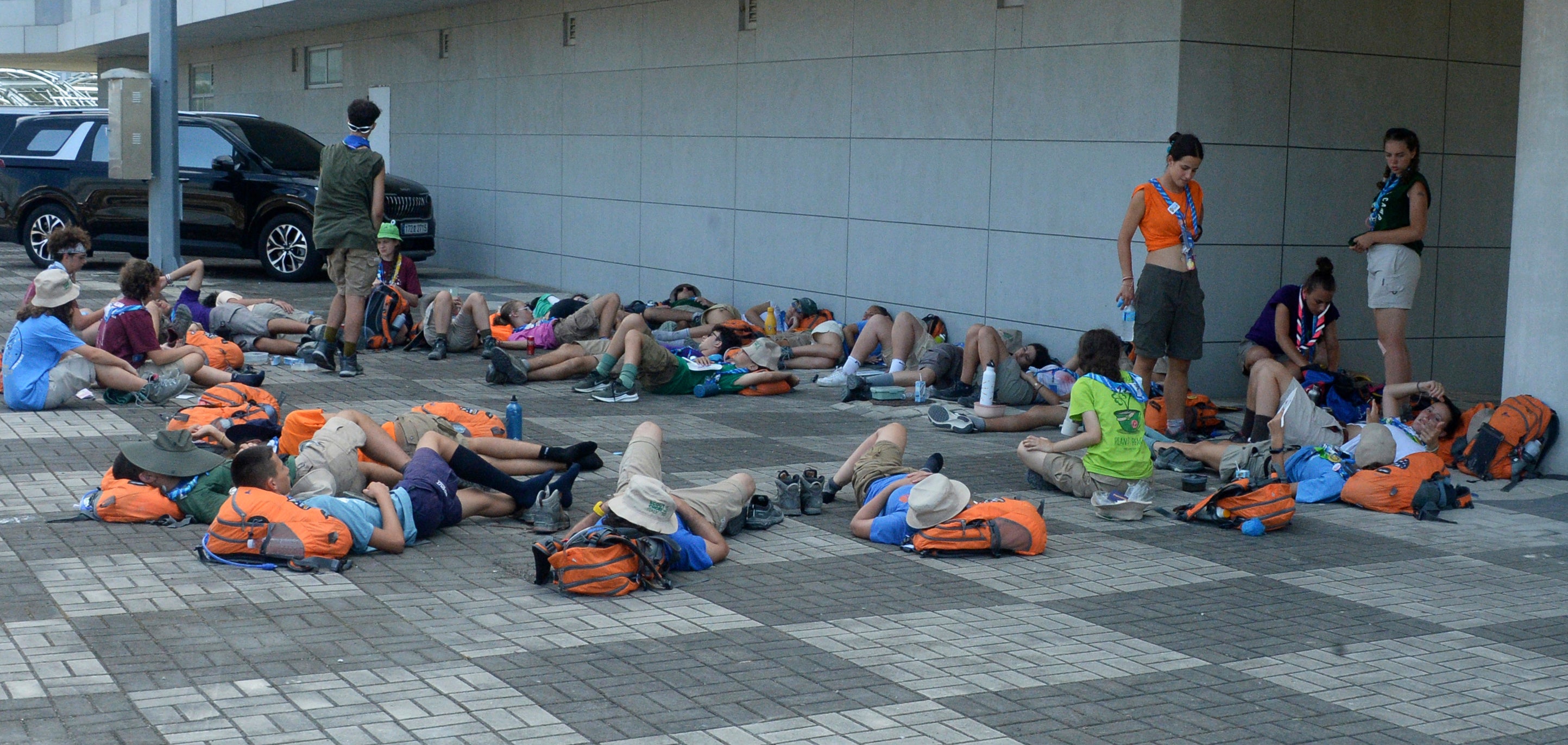

Olaf Clayton recounted the ordeal of his daughter 16-year-old Gabriela, who had travelled to the even with British Scouting Overseas.
“There was no shade, all activities were cancelled, and there were huge mosquitoes,” he said. “Gabriela is quite a tough cookie, but she said there were ‘funny things’ coming out of the ground. There was a snake under her bed - thankfully the Bangladeshi scouts knew just how to deal with snakes.”
Parents and the public alike criticised the organisers for not anticipating the heat. A mother told The Independent the heatwave was the “final part in the perfect storm” of failures, with its effects exacerbated by an apparent lack of medical facilities.
The 46-year-old, from the East Midlands but who did not wish to be named, said her 16 year-old daughter was “severely” bitten by mosquitoes as the campsite was “infested” amid the heat. She said the Jamboree was ”clearly not safe”.

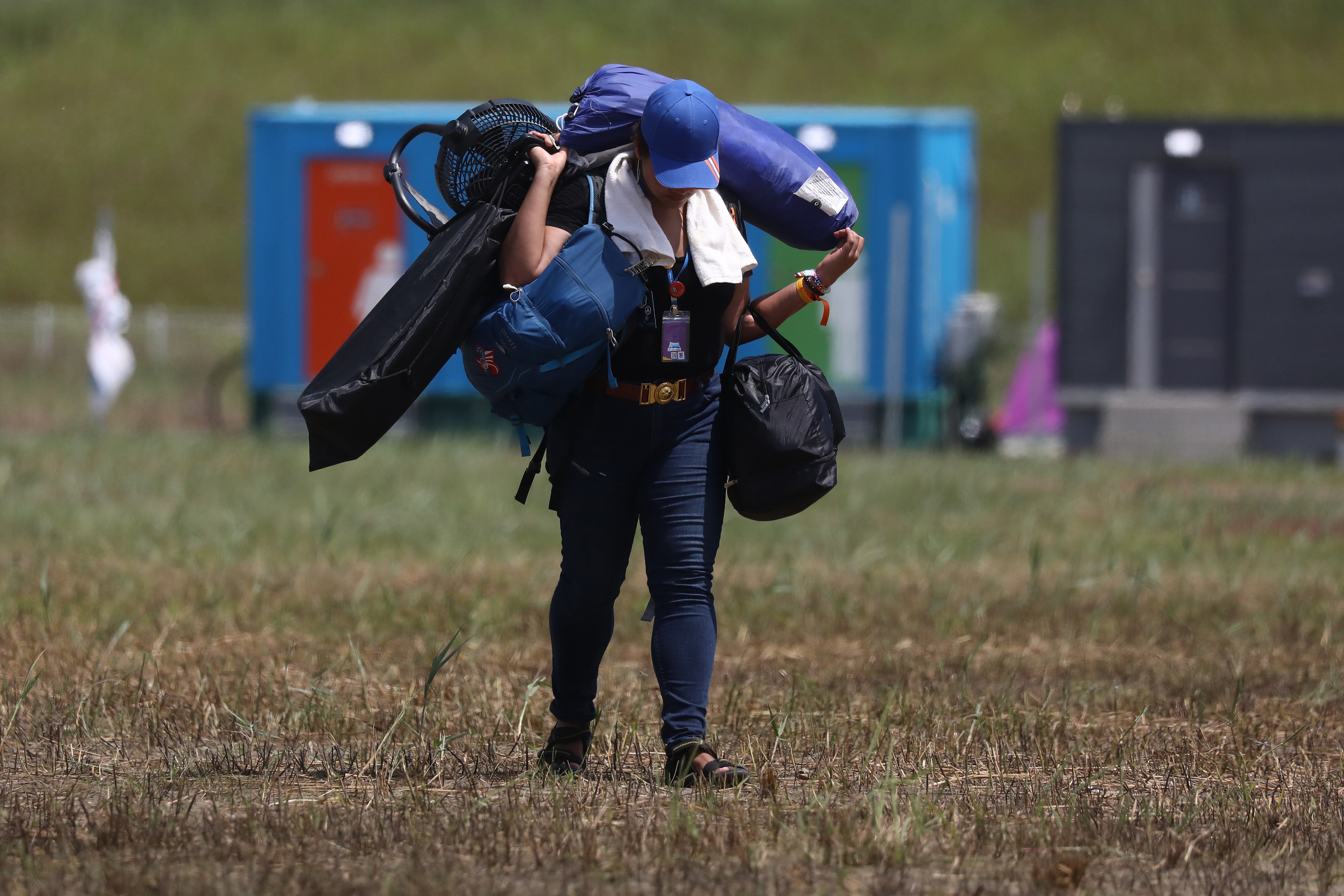
It wasn’t just parents thousands of miles away who raised concerns. UK Scouts chief executive Matt Hyde said it was “punishingly” hot in South Korea and that scout leaders were “concerned about the heat relief measures that have been put in place” as well as the medical services available.
He said he felt “let down” by the organisers, adding: “It is critical that the lessons are learned. Things were promised, they weren’t delivered.”
When children were falling sick in their hundreds, the South Korean government initially insisted the event was safe enough to continue. Authorities channeled resources to keep the Jamboree going, adding medical staff, air-conditioned buses, military shade structures, and hundreds of workers to maintain bathrooms and showers, which some Scouts had complained were filthy or unkempt. Provincial governor Kim Kwan-young later apologised on Sunday for not being well prepared.
But it turned out that the heatwave was just the beginning. Tales of deteriorating sanitation and food shortages were starting to emerge, with a father, from Lancashire, who also asked to remain anonymous, saying his 17-year-old daughter told him of “disgusting” conditions.
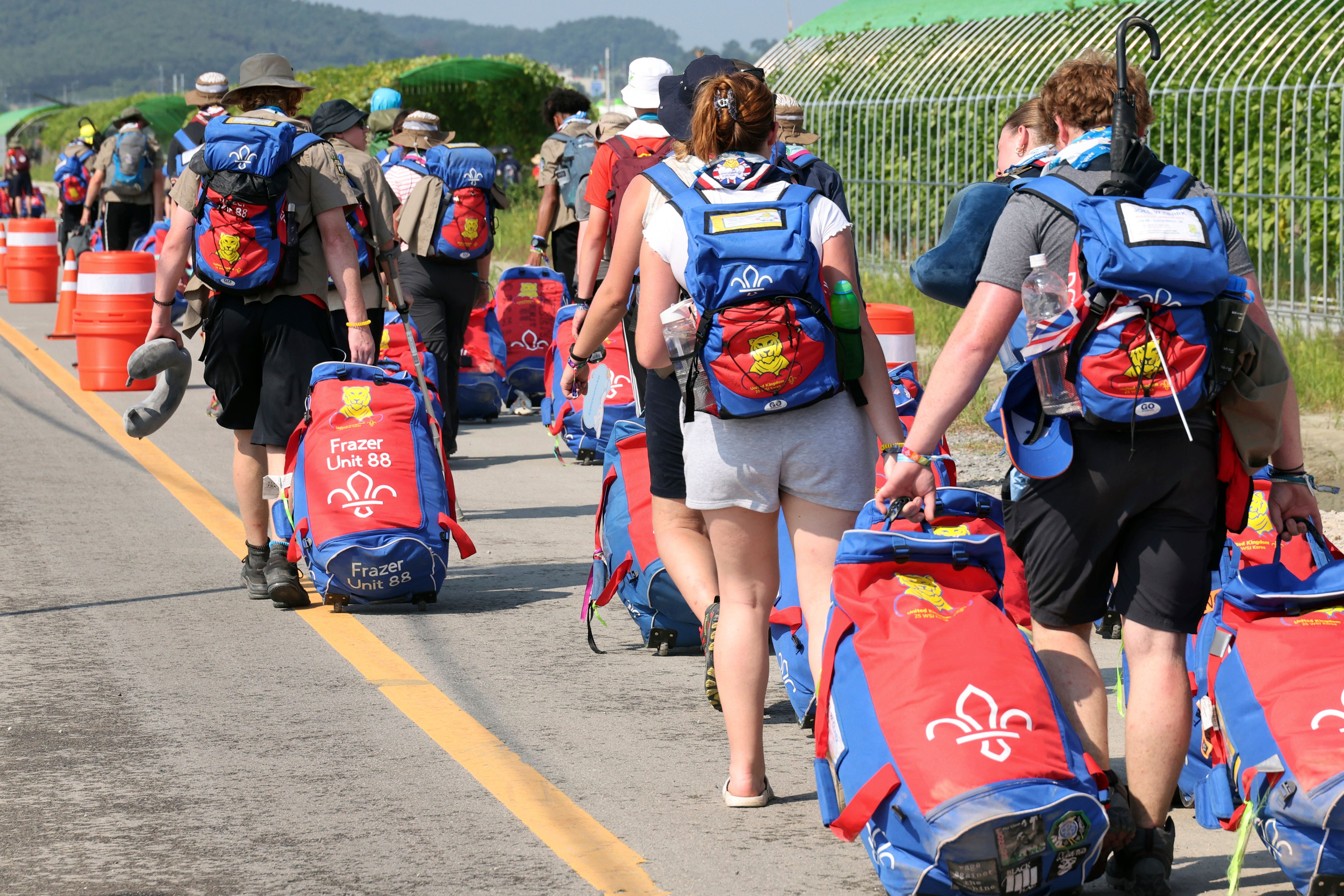
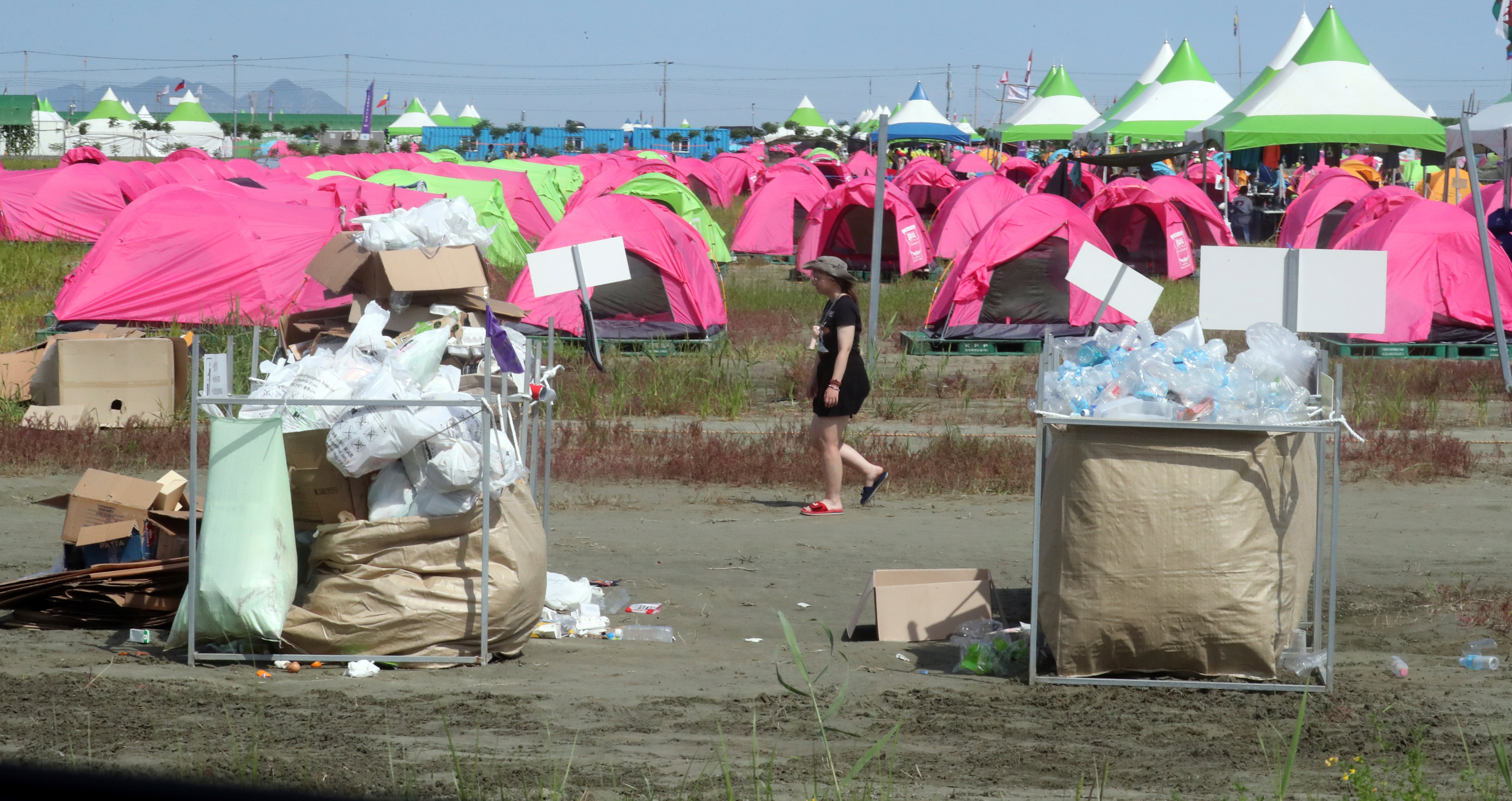
Another father with a child in attendance, writing on Twitter, called the camp a “disaster zone”, adding: “Why plan to ship thousands of teenagers to a hot zone?”
Then, just three days after the Jamboree had begun, UK Scouts withdrew its more than 4,000 people from the event on Friday. Mr Hyde later said this decision was made due to “severe” health and safety fears following concerns over the extreme heat as well as issues with food and “a lack of hygiene”.
“We were concerned that the toilets weren’t being cleaned frequently enough,” he said. “It wasn’t safe in there. And there was rubbish building up as well. T
“There were concerns around food and particularly those with dietary requirements that weren’t getting the food that they needed so they were eating less. We didn’t think it was safe for the young people and the adult volunteers.”
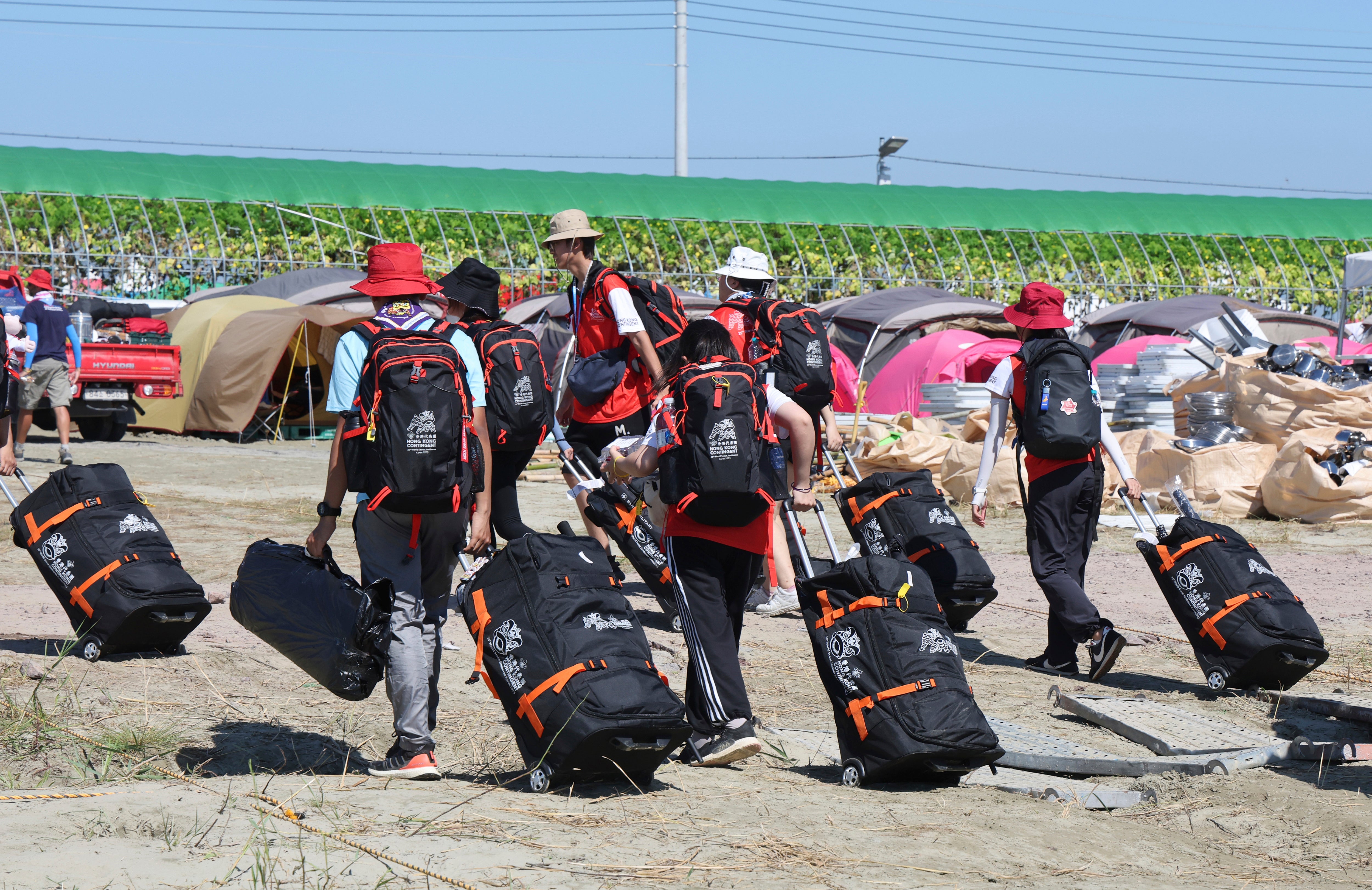

UK Scouts confirmed on Monday that all British attendees, who made up the largest contingent, had been relocated to hotels in the capital, Seoul, where it said the jamboree will continue until the original end date of 13 August.
Mr Clayton said of the campsite: “By the time they were leaving it was hell. Kids were fainting waiting for the buses to arrive.”
The father of an 18-year-old member of the UK Scout’s International Service Team told The Independent his son called him in tears after being informed of the UK contingency’s decision to leave the site.
He said he was “shocked and disappointed” at the jamboree’s poor infrastructure, citing poor sanitary conditions, a lack of drinking water and having to build their tents on pallets above swathes of mud. “The problem was the choice of the location in the first place,” he explained. There are a lot of questions that need to be answered.”

Following the Britons’ departure, a number of the other 154 nations attending started to follow suit. Shortly after came the withdrawal of the US Scouts to an army base, the Singaporeans into accommodation off site and the Norwegians to hotels in the city of Incheon.
On Monday, tens of thousands of Scouts still remained at the campsite - however, the worst was still yet to come, this time in the form of warnings from forecasters that Tropical Storm Khanun was heading toward the Korean Peninsula.
It was the looming typhoon, expected to make landfall Thursday morning, which ultimately defeated the South Korean government’s desperate attempts to keep the 12-day gathering going. On Monday afternoon, officials announced the decision to abandon the coastal campsite.
The following day, more than 270 police cars and four helicopters are deployed to escort the 1,000 vehicles transporting the Scouts, said Interior and Safety Minister Lee Sang-min.
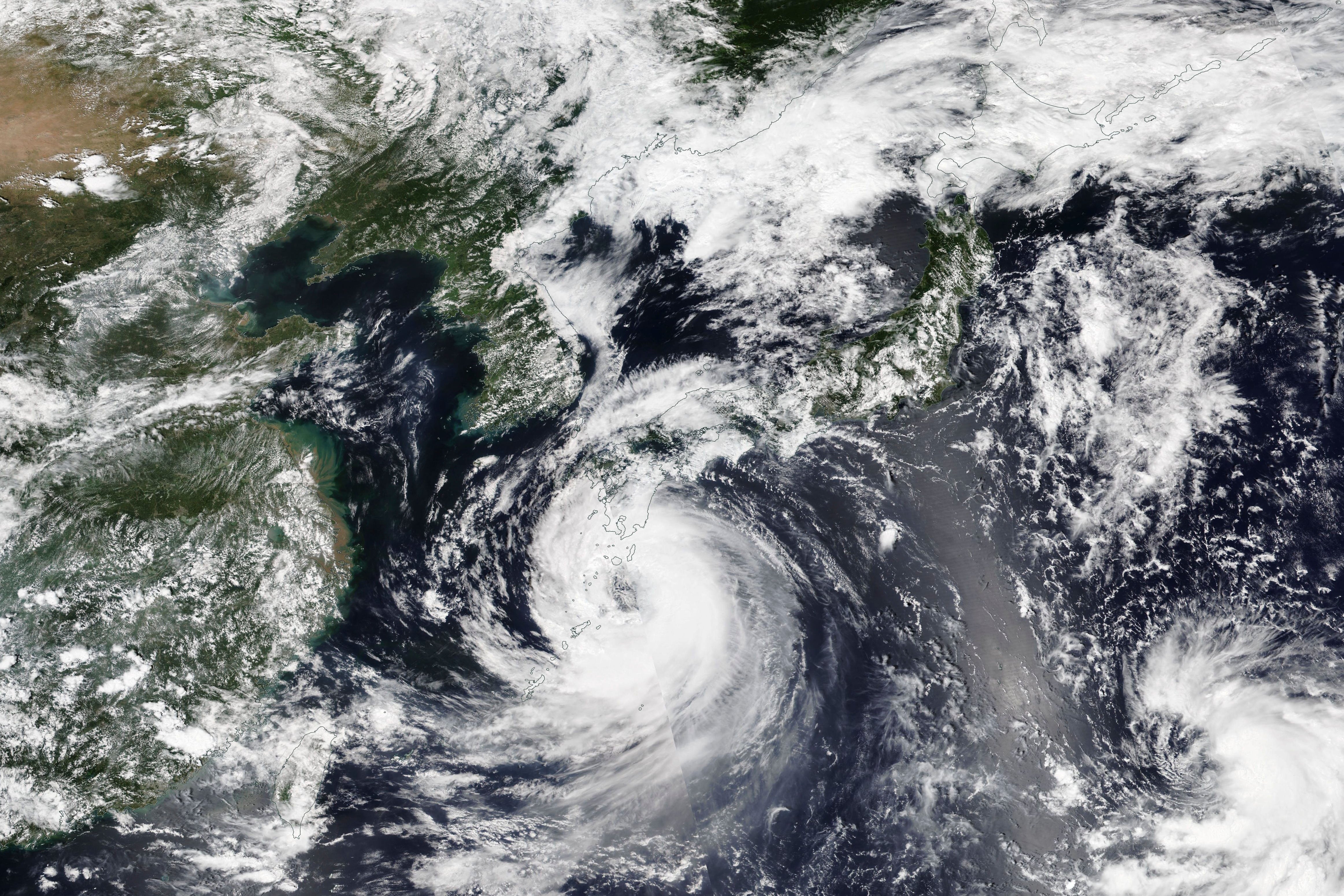
Tens of thousands of young people begin arriving at university dormitories, government and corporate training centers, and hotels around Seoul and other inland cities, carrying huge backpacks and water bottles.
Describing the Scouts as an “incredible force for good”, Chief Scout Bear Grylls said he is proud of the young people who have “battled some tough conditions” over recent days.
In an emergency meeting to discuss the storm on Tuesday, South Korean President Yoon Suk Yeol said the country will do its utmost to ensure the safety of the Scouts so that they can "return home with good memories”.
Tropical storm Khanun has meandered around Japan’s southwestern islands for more than a week, dumping heavy rain, knocking out power and damaging homes. Authorities appeared to blame the collapse of the event squarely on the impending storm, rather than the myriad problems that preceded it.
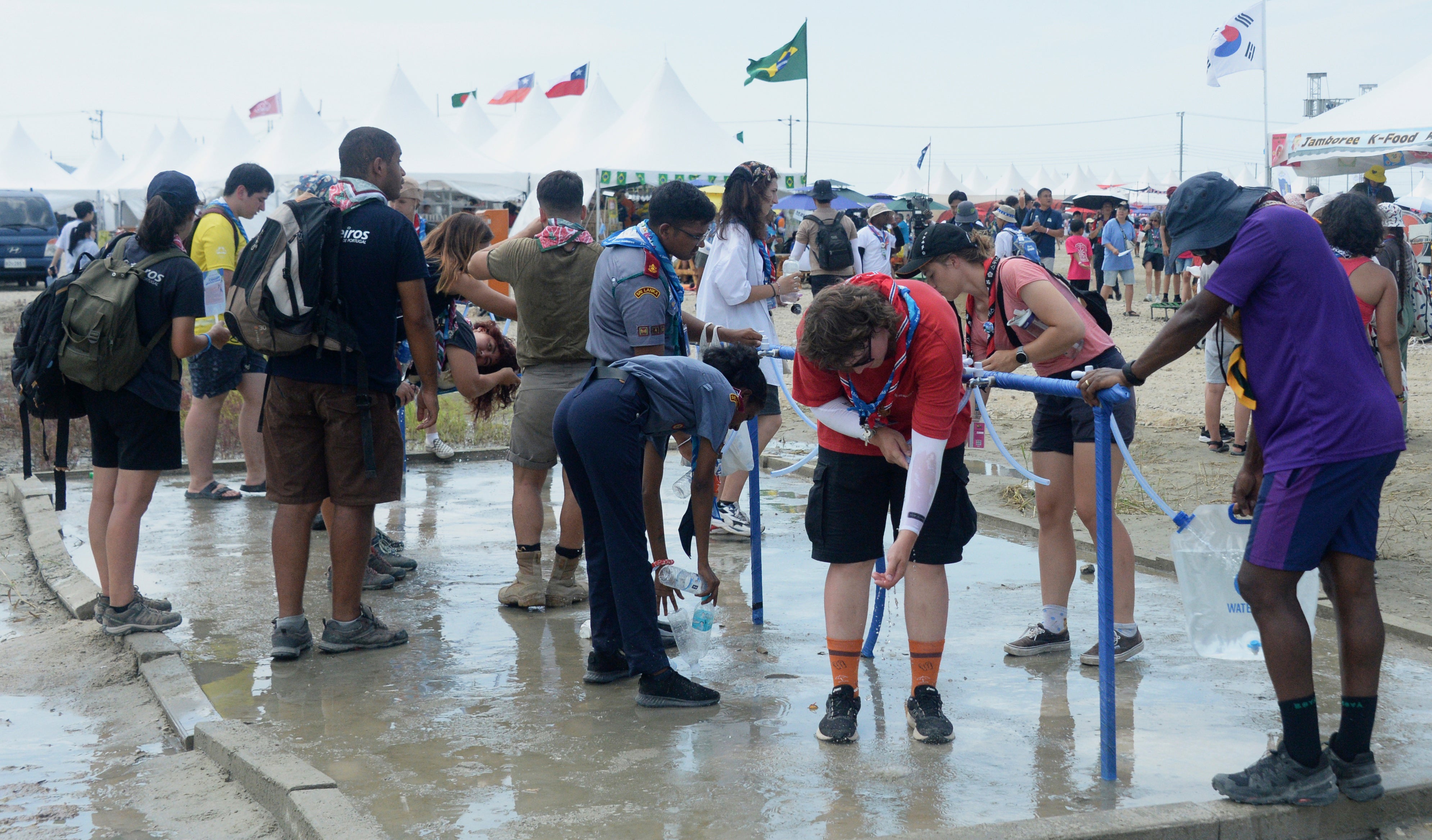
Kim Hyun-sook, whose Ministry of Gender Equality and Family had organised the event, previously stressed that the jamboree will continue, albeit in a different location. “I can say that it is the location that is only changing because of the natural disaster, but it is still continuing,” he said.
Ahmad Alhendawi, secretary general of the WOSM, credited South Korea’s government for “mobilizing all available resources” into the “safe and secure” relocation effort.
“Scouts have once again demonstrated true leadership, determination and teamwork in the face of adversity, putting their skills to good use during this challenging situation,” he said, adding: “It's disappointing that these adverse weather conditions have forced us to shift our plans.”
But concerns had been raised beforehand about having such large numbers of young people in a vast, treeless area lacking protection from heat.
And even when South Korea successfully bid to host back in 2018, the event was beset by controversies. At that time it was over land use, but it could be seen as an omen for the worsening disasters to come.



Join our commenting forum
Join thought-provoking conversations, follow other Independent readers and see their replies
Comments